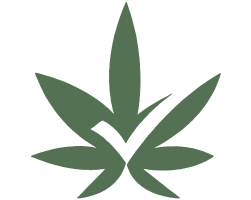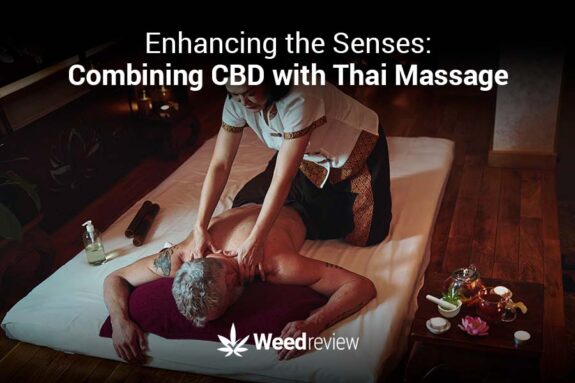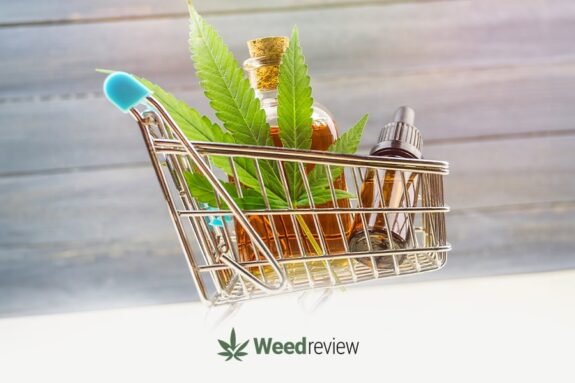
Shelf Life of CBD – Does CBD Lose its Effectiveness Over Time?
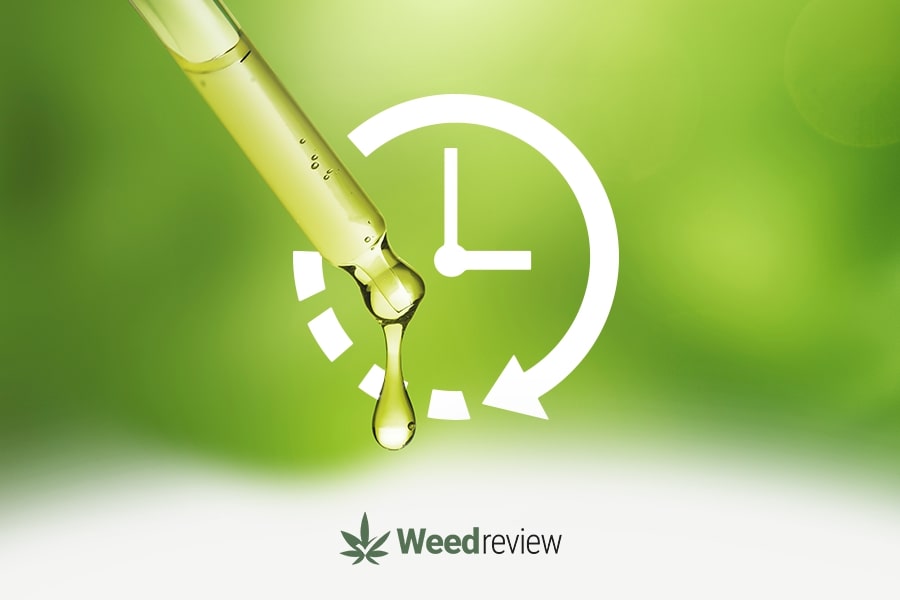
Table of Contents
High-quality CBD can be an expensive purchase. You want to make sure that you can use it to the fullest before it loses potency.
For many people, the right dosage only includes a few drops of CBD oil a day to help with their symptoms. Taking it at that rate, it could take you several months to get through a bottle. For others, the same bottle would last only a month.
A question that is often asked is whether or not CBD products have an expiration date. If so, then how fast do you generally have to finish it? On average, CBD has a shelf life of 1-2 years, but there are factors that can change that.
In this article, we will address the question of whether CBD loses its effectiveness over time and if it has an expiration date.
Factors affecting the shelf life of CBD
The shelf life of CBD is not set in stone and can be influenced by several elements. These general guidelines apply to all CBD products and will help extend the expiration date.
As a rule of thumb, always follow the manufacturer’s instructions for the optimal shelf life and efficacy of your CBD product.
- Quality of the CBD: The quality of the CBD is the most critical factor in determining its shelf life. High-quality CBD, sourced from reputable growers and extracted using the best methods, tends to have a longer shelf life.
- Type of product: Edibles like brownies will have a short shelf life – usually in weeks – compared to concentrates like tinctures.
- Extraction method: The method used to extract CBD from the cannabis plant also affects how long it lasts. Methods that preserve the most cannabinoids and terpenes, such as CO2 extraction, generally prolong the shelf life.
- Type of CBD: Full-spectrum CBD, which contains all the plant’s cannabinoids, tends to have a shorter shelf life than CBD isolate, which contains only CBD.
- Proper Storage: CBD should be stored in a cool, dark place to preserve its potency. Exposure to heat, light, or air can degrade CBD over time.
- Packaging: CBD products should come in air-tight, dark-coloured containers that reduce exposure to light and air. This helps maintain the potency and effectiveness of the CBD.
- Carrier oil: The type of carrier oil in which CBD is dissolved can affect its shelf life. Certain oils, like olive oil and hemp seed oil, can extend the shelf life of CBD.
Does your CBD have an expiration date?
The ultimate answer is it depends on the CBD product. In most cases, the expiration date will be mentioned on the label.
If improperly stored, CBD oil will usually degrade within 6 months. However, when you store CBD oil correctly, you can safely expect the product to last between 12-15 months.
The carrier oil is an important factor in how long it will last. MCT oil (medium-chain triglycerides) and olive oil generally last longer than hemp oil. This is due to the high amount of fatty acids inside the hemp oil that are susceptible to oxidation.
Once CBD oil has been added to different products, the shelf life may change due to the other ingredients in it. Some CBD products will have an expiration date on them but may still be effective past it.
Mentioned below is a quick overview of the shelf life of different CBD products.
Oils
Typically, CBD tinctures have a shelf life of about 12 to 15 months if stored correctly. As the extract ages, there’s a gradual decrease in its effectiveness. You might notice the change in its colour, turning darker, which is a visible indication of cannabinoid decay.
It should be kept in a cool, dark place as exposure to light and heat can cause the oil to break down faster. Refrigeration is not necessary but can extend its shelf life.
Always ensure the bottle cap is tightly sealed after use to prevent exposure to air, which can also promote degradation
Gummies
CBD gummies can stay effective for up to 24 months, depending on how they are stored. If they have been vacuum sealed and stored in a dark location, then you will get the maximum shelf life out of them.
Once opened, the shelf life will reduce greatly, and the gummies should be eaten within 6 months if stored correctly. If left out in the open, like in the hot sun, you can expect them to go bad in a few days.
Store them in an airtight container that is placed in a cool, dark location. Check the original packaging to see if the gummies need to be refrigerated once the package is opened.
The main ingredients in most gummies are sugar, pectin or gelatin, and flavouring, which all have a long shelf life and contribute to overall longevity.
As the gummies age, they begin to change as a result of environmental factors like light and air. Light and heat can cause the cannabinoids to degrade, which changes the taste and texture of the product.
Flower
CBD flowers can be effective for up to 24 months with proper packaging and storage. The key is to vacuum seal the bud and store it in a cool, dark place. Keeping them away from light will be important as volatile terpenes and cannabinoids quickly degrade in direct sunlight.
The shelf life is also determined by the quality of the buds, how they were dried, and the curing process. In all cases, high-quality cannabis flowers are generally cared for better during their life, which is reflected in how long the final product retains its potency.
The loss in potency is seen in the form of amber/light green buds with no/unpleasant smell.
CBD flowers are the easiest products to store. Keeping it in an airtight container away from the sun will keep the terpenes and cannabinoids from evaporating.
Edibles
Edibles infused with CBD, like baked goods or chocolates, have a far different shelf life compared to the oil/butter itself. Most baked goods, if not eaten within a week, begin to lose their freshness and can start to mould.
The same goes for CBD chocolates and other sweets. As such, the potency of the CBD in these edibles may remain intact, but the overall quality and safety of the edible product may deteriorate over time.
Generally, these edibles tend to have a shorter lifespan due to the nature of the food products – like dairy – added to them. For example, a CBD-infused brownie’s effectiveness and freshness are limited by the shelf life of the brownie itself.
Ideally, they should be stored in a cool, dark place to prevent spoilage and maintain quality. Refrigerating your edibles can also help extend their life, but always check the specific storage instructions on the packaging for optimal freshness and effectiveness.
Topicals
CBD topicals such as creams and lotions can last up to 12 months in the right environment. Even though the packaging may up to a year or two, different stabilising chemicals tend to preserve them for longer.
Storing them in cool and dry environments will preserve them the best. Being in a hot car or near a lamp may degrade the components and alter their effectiveness.
How to know if your CBD goes bad?
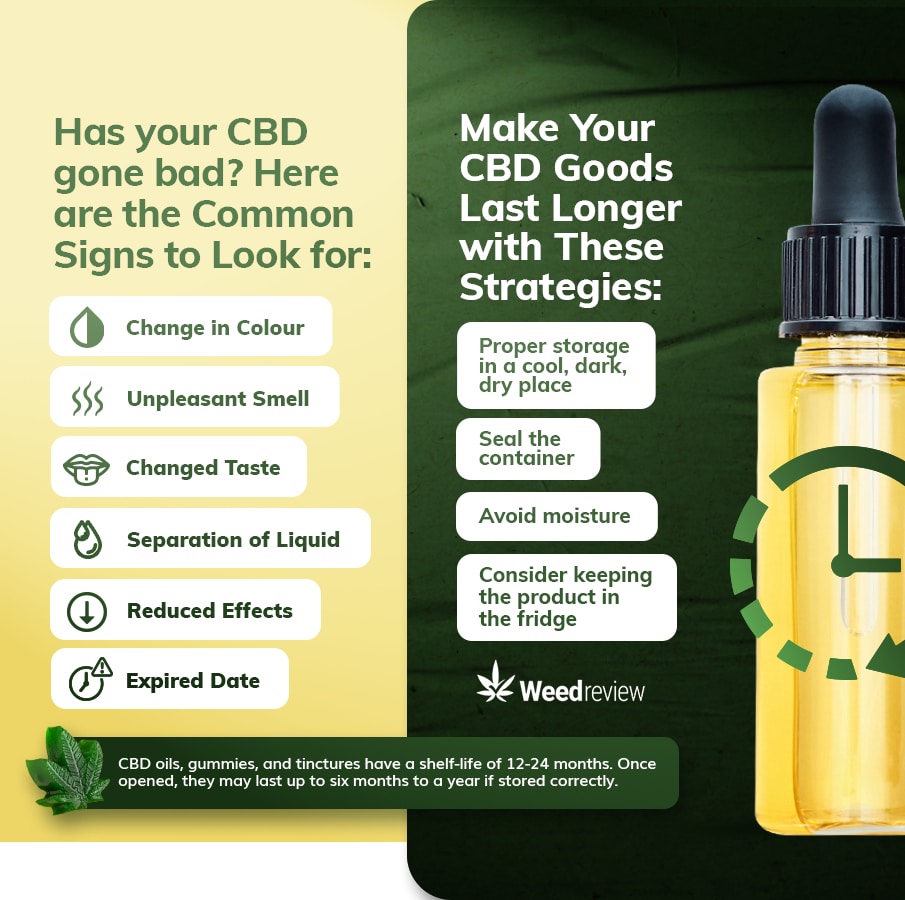
The first step is to take a look at the packaging and see if there is an expiration date on there.
If that fails, checking the ingredients will give you an indication of whether or not some components are more perishable than others.
Lastly, you can investigate the CBD product for yourself to be sure. Here are some indicators that your CBD product has gone bad:
- Change in colour or texture: Over time, CBD products may undergo a change in colour or texture. This is due to the degradation of cannabinoids or exposure to heat or sunlight. A change in appearance is a sign that it has expired. For flowers, this means possible mould and a bright green/yellow or amber colour.
- Unpleasant smell: A rancid or foul smell is a clear indicator that your CBD product may no longer be good to use. The smell can change due to the breakdown of the oil or other ingredients in the product. In the case of buds, this means a weak smell and less pungent aroma.
- Change in taste: If your CBD product tastes bitter, harsh, or metallic compared to when you first opened it, it has likely expired. Always be aware of the normal taste of your product to identify any changes.
- Mould growth: This is a serious indicator that your CBD product has gone bad. Any signs of mould or bacteria growth on your product means it should not be consumed or applied. Always inspect your products carefully before use.
- Lab Testing: High-quality CBD products often undergo third-party lab testing, and the results may include information on the expected shelf life.
It’s important to regularly inspect your CBD products to ensure their quality and effectiveness and follow the storing instructions to minimize the risk of spoiling.
Will other cannabinoids go bad?
Cannabinoids don’t actually “go bad”. However, over time, the cannabinoid molecules are changed structurally, which can lead to a reduced or different effect on your body. While the changed effect may not be significant, it won’t be what you were looking for.
For example, if you leave a THC edible out in the sunlight for too long, it can degrade into another cannabinoid, CBN. CBN is known to cause drowsiness but lacks the intoxicating effects of THC.
Do different CBD spectrums expire quicker?
There are three types of CBD oil you can buy: full-spectrum, broad-spectrum, and CBD isolate.
Full and broad-spectrum contain additional cannabinoids that can be affected by the environment over time. The degradation and conversion of various cannabinoids will influence the effectiveness of the product. That’s why they have a shorter expiry date since they contain more plant material.
CBD isolate is pure CBD and will naturally have a longer shelf life when stored properly, as there is only one cannabinoid that can be altered.
Can expired CBD make you sick?
The chances of you getting sick from expired CBD are minimal as long as there aren’t any ingredients in the product that can become toxic.
For example, an expired dairy product or other perishable ingredients can make you sick. It is best to follow the best-before dates on infused food items.
CBD oil in itself won’t become toxic. If consumed, it will just lose its potency and not produce any effects.
That said, it is important to consult your doctor before consuming any CBD products to ensure you are using the right products for your body.
Tips on making CBD products last longer
Even though there is a finite shelf life for CBD, there are ways that you can maximize it.
A good shelf life would be considered between 12-18 months before the potency begins to drop.
- Don’t keep the bottle open for too long: Resealing your CBD bottle as quickly as possible will minimize the oxidation of the product.
- The darkest places are the best for storage: Pantries, drawers, and cellars are dark and cool. This prevents bacterial growth and sustains cannabinoid potency.
- Don’t keep your CBD in a humid room: A humid room promotes the growth of bacteria in your CBD, especially if there are other organic ingredients in it. Keeping the relative humidity at 50% humidity (no greater than 60%) is recommended.
- Store in cool places: Cooler temperatures are generally more favourable to increase the longevity of your CBD product. If the temperature is too high, bacteria have a bigger chance of growing. Avoid storing near furnaces or ovens.
- Use clean utensils for dosing: A dirty utensil has bacteria growing on it, which can then be transferred into the tincture or extract. Use a freshly cleaned utensil for every dosing to ensure there is no cross-contamination.
Conclusion
Keeping your CBD products fresh and potent requires minimal effort on your part. Storing them in an airtight container that is put in a cool, dark room is the best combination for long-term shelf life.
High-quality CBD products are known to maintain their potency for a longer duration compared to their lower-quality counterparts. This is because they are often derived from superior-grade hemp and processed using advanced extraction methods.
Avoid the influence of any environmental factors that can cause bacterial growth, such as sunlight, heat, and moisture.

